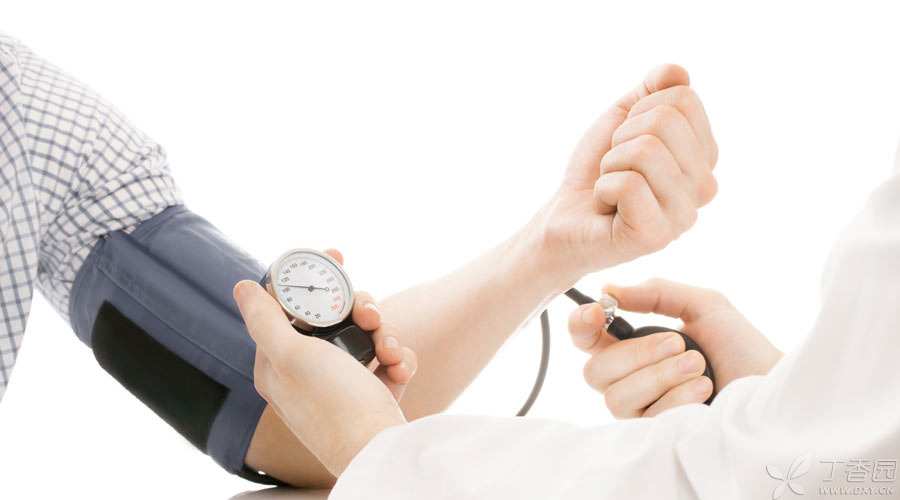
When I went to the cardiovascular internal medicine department for consultation, the nurse was taking the blood pressure of my consultation object, Aunt Wang, who was in her 50s.
Aunt Wang wanted to talk to me about her illness and also wanted to cooperate with blood pressure measurement.
She was hospitalized this time because her blood pressure went up and down, and the drug could not be adjusted to the appropriate dose, so she also wanted to solve the mystery of blood pressure quickly.
I asked her to feel at ease and finish her blood pressure before talking.
Nervous Aunt Wang
Obviously, the nurse is already familiar with Aunt Wang. Seeing that her upper limbs are stiffly suspended in mid-air, she couldn’t help laughing [sniffing] and kept urging her: “Relax a little, otherwise the blood pressure will be high every time you measure]. At the same time, she pressed Aunt Wang’s arm down and said,” You are too nervous, relax-relax “.
I stood on the other side of the bed and watched Aunt Wang put her arm on her body, and her body seemed to lie back vigorously. I could see that she also hoped to adjust to a relaxed posture. But what was more obvious was that her eyebrows frowned tighter, while her other hand was still holding the sheet back and forth inadvertently.
[Nervous, huh? ]
[Well, a little, but fortunately, I have tested it many times.]
[Yes–Nervous, huh? ]
[Well, my blood pressure is high when I am nervous. So I dare not be nervous.]
So you are really nervous right now? ]
[Yes, yes.]
Before our chat, the nurse had already finished taking a blood pressure of 160/95 mmHg.
How can we not be nervous?
The nurse said regretfully, “Oh, you are still a little nervous. Relax. The test two hours ago was quite normal.”
I can see that Aunt Wang is already a little at a loss. Obviously, she also doesn’t know how to be [not nervous].
I thought for a moment and helped her with some treatment.
-
I asked her to take a few deep breaths first, and to exert herself. Her inhalation time was obviously too short, and she stopped in less than a second and began to exhale.
-
I asked her to feel the movement of her chest, open her chest when inhaling, and inhale as long as possible. She tried several times, which was longer than before.
-
Her left arm was still wrapped in a blood pressure band. I asked him to hold my hand tightly with his right hand. I told her that I wanted to crush me with the best of my strength and then let it go slowly.
-
At the same time, I asked her to breathe together and do it several more times.
So she inhaled deeply and held my hand hard. Exhale slowly and let go of my hand. I also stimulated her, saying that she [that’s all, a little harder].
Aunt Wang was really good at fighting. She also bit her teeth and her hands shook a little.
Later, the nurse began to measure blood pressure. Aunt Wang still frowned and looked at the sphygmomanometer from time to time. At the same time, with breathing, she held her right hand hard and slowly loosened her right hand.
This time, her blood pressure whizzed down to 135/90 mmHg.
Why is Aunt Wang so nervous?
Anxiety is an emotional reaction caused by people facing potential challenges or threats in reality, which is adapted to realistic stimuli in intensity and duration.
High school students feel anxious about exams, and everyone feels understandable. But if I tell you, Aunt Wang has to test her blood pressure 5-10 times a day before going out every time. Once she finds out that she is more than normal, she will not go out. Do you still think you can understand?
This is anxiety disorder.
For Aunt Wang, the method I just adopted is called [relaxation training] in psychiatry.
This method, some people used the effect is not good; Someone used it to work wonders.
How Makes [Relaxation Training] Work Magically?
I think there are three main points.
STEP 1 Extend [tension] to the fullest
A patient once said in the clinic, “I am dying of nervousness, my heart is beating hard, help me quickly.” I asked him to be more nervous until the patient shouted, “No, I have tried my best to be nervous, how can I be nervous?”
With that, we all laughed-if we can’t make the patient nervous to the extreme, we can’t relax.
Step 2 Breathe deep enough
How deep is it?
- When inhaling, the speed should be fast and the strength should be enough. The belly should try its best to close the front belly and stick it to the back belly. When exhaling, be sure to evenly and slowly, and try to look like a big watermelon.
In this way, people can better experience [tension].
3. [Understanding Tension] Is More Important than [Pursuing Relaxation]
From a psychological point of view, everyone has a tendency to relax more. Therefore, when someone feels nervous, she must not be able to relax. If she is reluctant, it will aggravate her nervousness.
Therefore, relaxation training does not require the patient to relax, but actually conveys an understanding of her nervousness, so that the patient’s existing nervousness can be strengthened, presented and channeled.
Even if sometimes, the patient does not realize complete relaxation in the end, he will feel at ease because he feels understood.
If you also suffer from hypertension, you can consider paying attention to the WeChat public number of Gxyyisheng, a subsidiary of Dr. Clove. If you are nervous when you take your blood pressure just because of anxiety, you can pay attention to Dr. Clove’s [Xinlijibing] WeChat public number.
Responsible Editor: Ding Ruoshui
